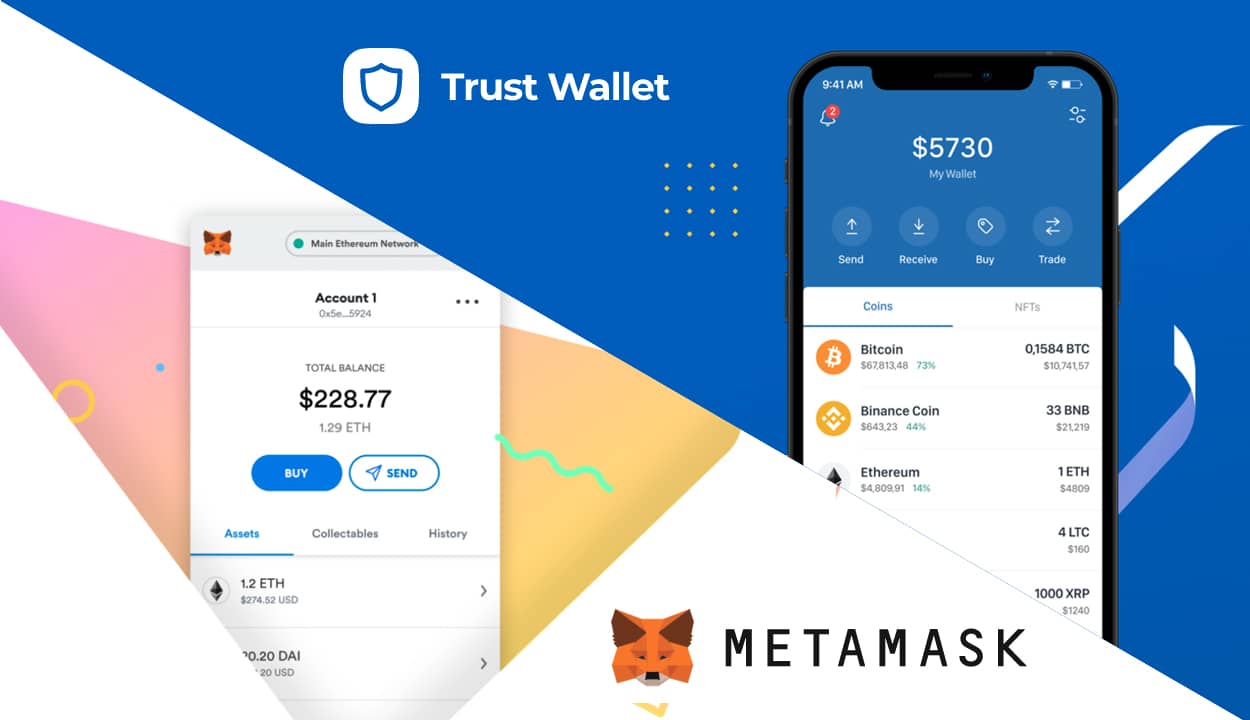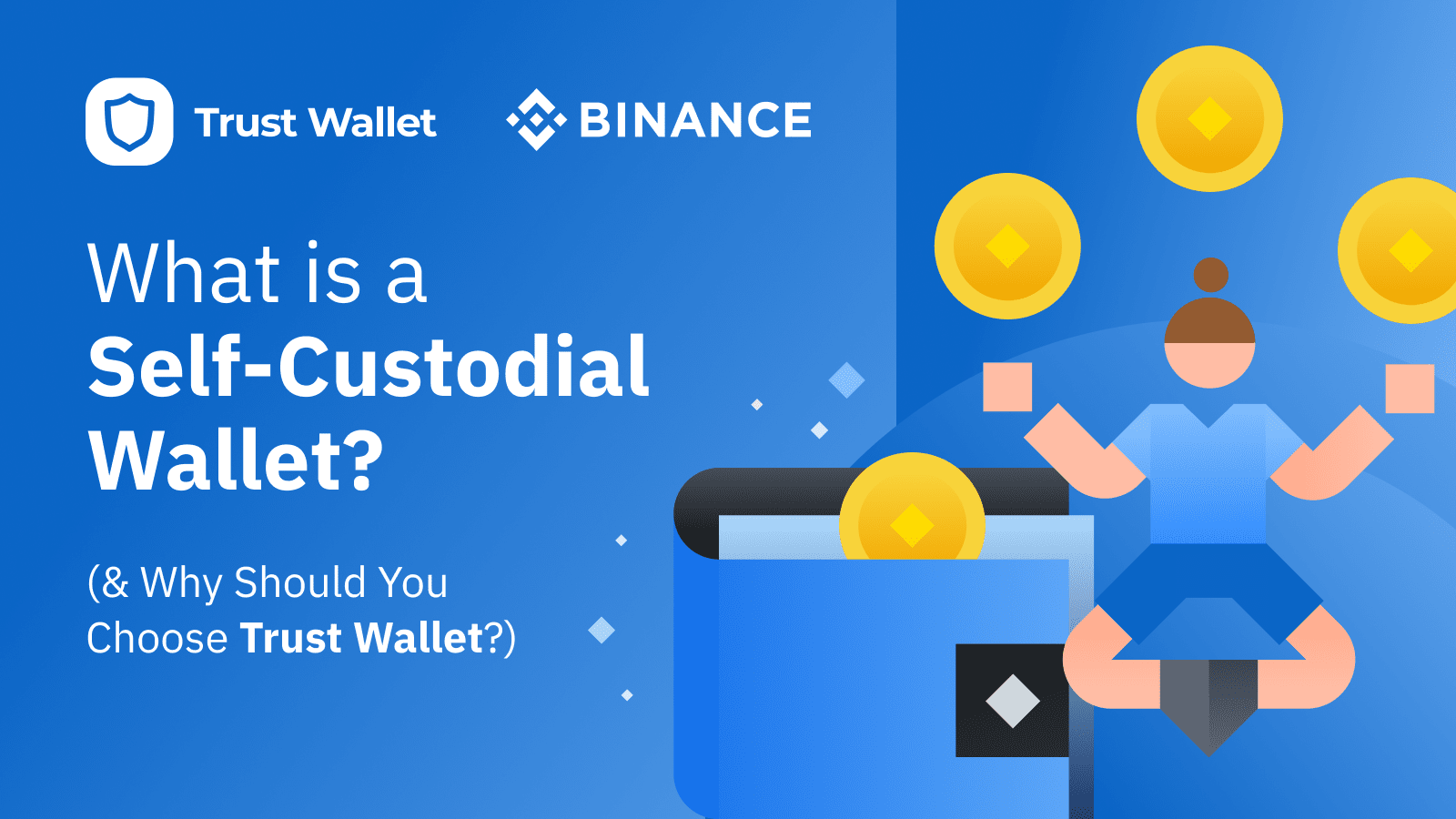Whether a wallet is “better” than Trust Wallet depends on your specific needs. Ledger offers superior hardware security, MetaMask provides better Ethereum DeFi integration, and Exodus excels with its user-friendly interface and customer support. Coinomi supports a broader range of cryptocurrencies. Choose based on your priorities: security, ease of use, DeFi access, or asset diversity.

Choosing a Wallet Better Than Trust Wallet
Advantages of Trust Wallet
Trust Wallet offers a user-friendly interface and robust security features, making it a popular choice among cryptocurrency users. It supports a wide range of cryptocurrencies and allows users to interact directly with decentralized applications (DApps) without leaving the wallet. Its key advantages include:
- Multi-Currency Support: Trust Wallet supports thousands of cryptocurrencies, including ERC-20 and BEP-2 tokens.
- User-Friendly Interface: Designed for ease of use, Trust Wallet is suitable for both beginners and experienced users.
- Decentralized and Secure: As a non-custodial wallet, it gives users full control over their private keys.
Reasons to Look for Trust Wallet Alternatives
While Trust Wallet offers many benefits, users might seek alternatives for various reasons:
- Hardware Wallet Integration: Users looking for enhanced security through hardware wallets may explore other options that offer seamless integration.
- Different Features: Some may prefer wallets with unique features like built-in exchanges, more extensive asset support, or better privacy measures.
- User Experience: Personal preference in UI/UX design might lead users to find an alternative that aligns more closely with their needs.
Criteria for Evaluating Wallets
When searching for a wallet that fits your needs better than Trust Wallet, consider the following criteria:
- Security: Look for features like two-factor authentication, multi-signature support, and hardware wallet integration.
- Supported Assets: Ensure the wallet supports all the cryptocurrencies you intend to use.
- Ease of Use: A user-friendly interface can significantly enhance your interaction with the wallet.
- Privacy: Consider the wallet’s approach to user data and privacy. Some wallets do not require personal information, while others might.
- Additional Features: Evaluate other features such as staking, ability to buy crypto directly from the app, or integration with DeFi platforms.
- Community and Support: A strong community and responsive customer support can be invaluable, especially for new users.
MetaMask: A Benchmark in User Experience
Basic Features of MetaMask
MetaMask is a leading cryptocurrency wallet and gateway to blockchain apps, known for its seamless integration with web browsers and mobile devices. It primarily supports Ethereum and ERC-20 tokens, offering users the ability to interact with decentralized applications (DApps) directly from their browsers. Key features include:
- Browser Extension and Mobile App: Available as both a browser extension and a mobile app, facilitating easy access to Ethereum-based DApps.
- User-Friendly Interface: Designed for simplicity and ease of use, making it accessible for users of all levels of experience.
- Built-In Exchange: Offers a built-in exchange feature, allowing users to swap tokens directly within the wallet.

Comparison Between MetaMask and Trust Wallet
While both MetaMask and Trust Wallet provide access to a wide range of cryptocurrencies and DApps, there are notable differences:
- Blockchain Support: Trust Wallet supports a broader range of blockchains beyond Ethereum, including Bitcoin and Binance Smart Chain, whereas MetaMask primarily focuses on Ethereum and Ethereum-compatible networks.
- User Interface: MetaMask offers a browser-first experience, ideal for those frequently interacting with DApps, while Trust Wallet’s mobile-first approach suits users prioritizing on-the-go access.
- Security: Both wallets prioritize security, but their approaches differ. Trust Wallet offers a built-in security feature for storing private keys on-device, while MetaMask relies on browser security and encourages the use of hardware wallets for enhanced safety.
Advantages and Limitations of MetaMask
Advantages:
- DApp Integration: Direct integration with web browsers makes MetaMask an excellent choice for users frequently engaging with DApps.
- Community and Developer Support: A strong developer community and wide adoption among Ethereum DApp developers.
- Ease of Use: Intuitive interface and seamless web integration cater to both beginners and experienced users.
Limitations:
- Limited Blockchain Support: Primarily focused on Ethereum, which might be a limitation for users seeking a multi-chain wallet.
- Browser Extension Risks: Being a browser extension exposes MetaMask to potential browser security vulnerabilities.
- No Built-In Hardware Wallet: While it supports hardware wallets, it does not offer a built-in option like some other wallets.
Ledger Wallet: Leader in Hardware Security
Security Features of Ledger Wallet
Ledger Wallets, including the popular Ledger Nano S and Ledger Nano X, are renowned for their robust security measures designed to safeguard cryptocurrency assets. Key security features include:
- Secure Element (SE): Ledger devices use a secure chip (similar to those used in passports and credit cards) to add an extra layer of security.
- PIN Code Protection: Users must enter a PIN code to access their device, providing physical security against unauthorized access.
- Backup and Recovery: Each device comes with a 24-word recovery phrase, allowing users to recover their assets on another Ledger device or compatible wallets in case of loss or damage.
- Offline Storage: Being hardware wallets, Ledger devices store users’ private keys offline, making them immune to online hacking attempts.
Comparison Between Ledger and Trust Wallet
While both Ledger and Trust Wallet aim to provide secure cryptocurrency management, their approaches differ significantly:
- Physical vs. Software: Ledger is a hardware wallet providing offline storage, while Trust Wallet is a software wallet designed for mobile devices, storing keys on the device itself.
- Multi-Currency Support: Both wallets support a wide range of cryptocurrencies. However, Ledger’s support is more extensive due to its hardware nature, offering higher security for a broader array of assets.
- User Interface: Trust Wallet provides a more straightforward user interface suitable for beginners, while Ledger offers advanced features through its Ledger Live software, catering to both novices and experienced users.
- Security: Ledger’s hardware-based security features offer an additional layer of protection compared to Trust Wallet’s software-based security, making it more suitable for storing large amounts of cryptocurrencies.
Reasons to Choose Ledger Wallet
Choosing a Ledger Wallet over others might be preferable for several reasons:
- Enhanced Security: For users prioritizing the security of significant cryptocurrency investments, Ledger’s offline storage provides peace of mind.
- Ownership of Private Keys: Ledger gives users full control over their private keys, which are never exposed to a potentially vulnerable online environment.
- Versatility: Ledger devices are compatible with numerous cryptocurrencies and can be used in conjunction with various software wallets for additional flexibility.
- Trusted Brand: Ledger is a well-established brand in the cryptocurrency community with a proven track record for security and reliability.
Exodus Wallet: A One-Stop Crypto Solution
Multi-Currency Support in Exodus
Exodus Wallet stands out for its extensive support of cryptocurrencies, catering to a diverse user base by facilitating the management of a wide range of digital assets. It supports over 100 cryptocurrencies, including major coins like Bitcoin (BTC), Ethereum (ETH), Ripple (XRP), and Litecoin (LTC), as well as a variety of altcoins and tokens. This multi-currency support makes Exodus a versatile choice for users looking to diversify their cryptocurrency portfolio.
Comparison Between Exodus and Trust Wallet
While both Exodus and Trust Wallet offer multi-currency support and are designed to cater to a broad user base, there are distinct differences in their offerings:
- Platform Availability: Exodus is available on desktop (Windows, Mac, and Linux) and mobile (iOS and Android), providing a synchronized wallet experience across devices. Trust Wallet, on the other hand, is primarily a mobile wallet, focusing on iOS and Android users.
- User Interface: Both wallets prioritize user experience but in slightly different ways. Exodus is known for its beautiful, intuitive interface that is especially appealing to users new to cryptocurrency. Trust Wallet also has a user-friendly interface but places more emphasis on integration with decentralized applications (DApps) and the broader blockchain ecosystem.
- Security Features: Trust Wallet, being a mobile-first application, leverages the security features of mobile devices, such as biometric access. Exodus, while offering robust security measures, emphasizes ease of use and seamless integration across platforms, with additional focus on education and customer support.
- DApp Accessibility: Trust Wallet provides direct access to DApps and a built-in Web3 browser, making it a preferable choice for users engaged in DeFi and other blockchain-based applications. Exodus focuses more on asset management and has integrated exchange features but lacks direct DApp integration.

User Interface and Experience of Exodus
The user interface and experience of Exodus are often highlighted as key strengths. The wallet features:
- Intuitive Design: Exodus boasts a sleek and intuitive design, making navigation and management of cryptocurrency straightforward for beginners and experienced users alike.
- Portfolio Management: A real-time portfolio feature allows users to track the value of their cryptocurrency holdings within the wallet, providing a comprehensive overview of their assets.
- Integrated Exchange: Exodus includes a built-in exchange feature, enabling users to trade cryptocurrencies directly within the wallet, simplifying the process of asset management and exchange.
- Customer Support: One of Exodus’s standout features is its 24/7 customer support, which is highly rated by users for its responsiveness and helpfulness.
In conclusion, Exodus presents itself as a comprehensive crypto wallet solution with a focus on user experience, design, and multi-currency support. Its comparison with Trust Wallet highlights different strengths, with Exodus leaning towards users who prioritize a seamless, all-in-one desktop and mobile experience, and Trust Wallet catering more to mobile users with a focus on blockchain interactivity.